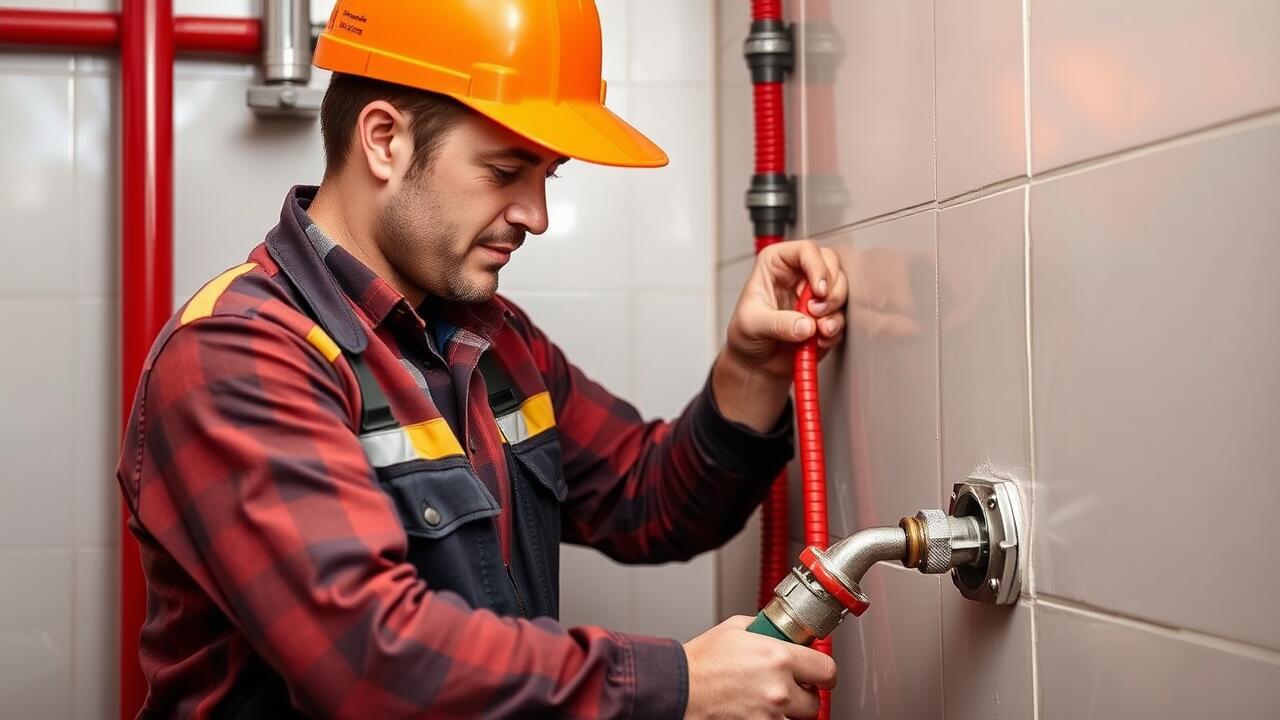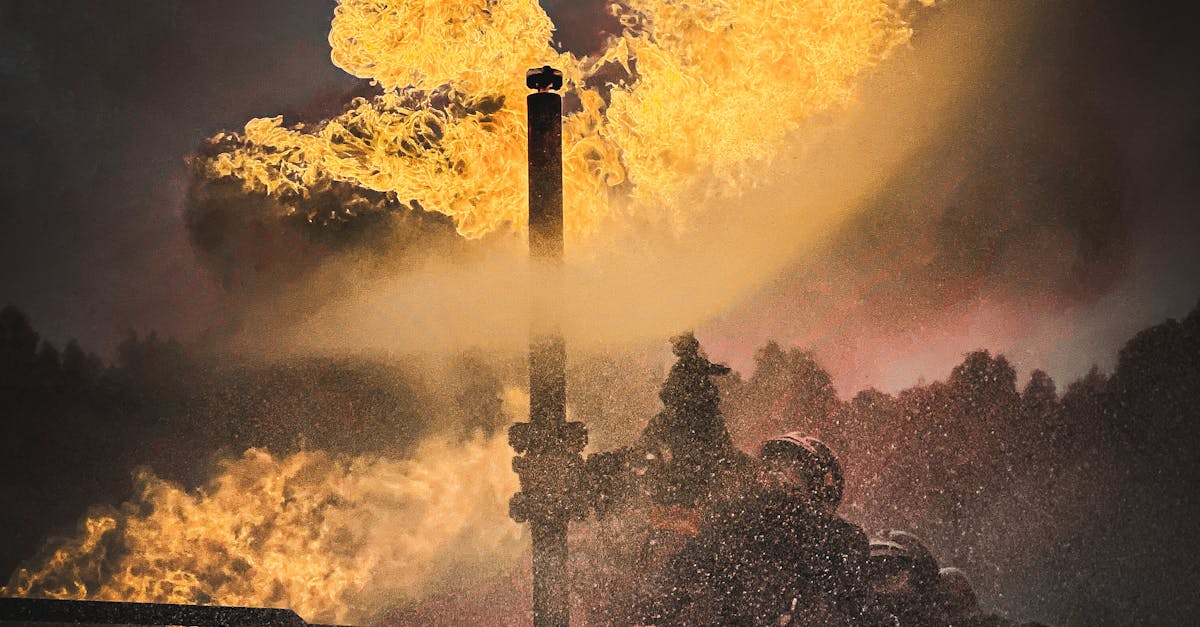
Table Of Contents
Assessing the Water Pressure
Low water pressure can significantly impact your hot water system's efficiency. When the pressure drops, the flow of hot water decreases, resulting in a less satisfying shower or inconsistent water temperatures. It’s essential to assess the water pressure in your home, as issues may stem from the municipal supply or problems within your internal plumbing. A simple pressure gauge can help you determine if the pressure is within the acceptable range.
If you discover low pressure, it may be worthwhile to consult a hot water plumber. They possess the expertise to diagnose issues related to pressure fluctuations, such as blocked pipes or malfunctioning valves. Investing time in understanding your water pressure can lead to a more reliable hot water system and a more comfortable living environment.
Understanding Its Impact on Hot Water
Water pressure plays a critical role in the efficiency of hot water delivery. Insufficient pressure can lead to inadequate flow rates, resulting in lukewarm or insufficiently heated water reaching taps and fixtures. This can be frustrating, especially during peak usage times when multiple outlets demand hot water simultaneously. If you are facing issues with water pressure, engaging a qualified hot water plumber can help identify underlying problems and suggest appropriate solutions.
Moreover, fluctuating water pressure can indicate faults within the hot water system itself. High pressure may lead to increased wear and tear on pipes and fittings, causing leaks or even bursts. Conversely, low pressure could signify blockages or sediment build-up, which further complicates hot water availability. A skilled hot water plumber can conduct a thorough assessment to determine if pressure issues are affecting your hot water system and provide the necessary fixes to restore optimal performance.
Flushing the Hot Water System
Flushing the hot water system is an essential maintenance task that can significantly enhance its efficiency. Over time, sediment and mineral buildup can accumulate in the tank, impacting the overall performance and lifespan of the system. Regular flushing helps remove these deposits, ensuring that the hot water heater operates smoothly and maintains optimal heating. A hot water plumber can assist if you're unsure of the process or if there are particular considerations for your type of system.
To flush the system, start by turning off the power to the water heater and shutting off the cold water supply. Attach a hose to the drainage valve and direct it to a suitable drainage area. Open the valve and allow the water and sediment to flow out, which may take some time. Once the water runs clear, close the valve, remove the hose, and reopen the cold water supply to refill the tank. It’s advisable to consult a hot water plumber for guidance or if the buildup is significant, as they can provide expertise in ensuring the process is conducted safely and effectively.
Steps to Remove Sediment BuildUp
Over time, sediment can accumulate in your hot water system, impacting its efficiency and performance. To effectively remove this build-up, start by turning off the power supply to the hot water system or turning off the gas supply if applicable. It is essential to allow the water to cool down before proceeding. Next, locate the drain valve at the bottom of the tank. Attach a garden hose to the valve, leading it to a safe drainage area, and open the valve to let water and sediment flow out.
Once you notice the water running clear, it is an indication that most of the sediment has been removed. Close the drain valve and disconnect the hose. Refill the system by turning on the cold water supply. You may need to check the pressure relief valve to ensure there are no air pockets. If you encounter difficulties or the sediment build-up is significant, consulting a hot water plumber can provide expert assistance. Their expertise will help ensure your hot water system functions optimally.
Checking for Leaks
Leaking pipes or fixtures can significantly affect your hot water supply. Common signs of leaks include the sound of dripping water and visible water stains on walls or ceilings. Inspect areas around taps, pipes, and the hot water system for any wet patches. A thorough examination can help you pinpoint the source of the issue. If the task is too complex, calling a hot water plumber is advisable to ensure proper identification and repair of any leaks.
Another area to check is the hot water tank itself. Over time, the tank can develop rust or corrosion, leading to leaks that may not be immediately apparent. Regular maintenance and inspections can help detect these problems early. If you suspect that your hot water system is leaking, consulting a hot water plumber can provide solutions and peace of mind, helping you avoid further damage to your home.
Identifying Sources of Water Loss
Identifying sources of water loss is essential for maintaining your hot water system. If you notice a drop in water pressure or inconsistent hot water supply, it's likely that there are leaks somewhere in the system. Common culprits include the hot water tank, pipes, and connections. Checking these areas for visible signs of moisture or damage can help pinpoint the problem. If you're unsure where to start or don’t feel confident with DIY inspections, consulting a hot water plumber can provide valuable insights and assistance.
Regular maintenance can prevent leaks from becoming major issues. Inspecting the hot water heater and its surrounding fittings can reveal small cracks or corrosion before they turn into significant problems. It's also beneficial to monitor your water bills; a sudden increase may indicate a hidden leak. If you suspect ongoing issues, bringing in a hot water plumber will not only help identify the source of the leak but also offer solutions to fix any underlying problems effectively.
FAQS
What should I do if my hot water system is not heating water at all?
First, check the power supply to the system, ensuring it’s plugged in or the circuit breaker hasn’t tripped. Next, assess the water pressure and look for any leaks. If everything seems fine but hot water is still not available, consider contacting a professional plumber.
How can I tell if my hot water system needs flushing?
If you notice a decrease in water temperature, strange noises from the system, or discoloured water, it may be time to flush the system. Additionally, regular maintenance every few years can help prevent sediment build-up and ensure optimal performance.
What are the common causes of low water pressure affecting hot water?
Low water pressure can be caused by various factors, including clogged pipes, a malfunctioning pressure relief valve, or issues with the municipal water supply. Checking for kinks in hoses and blockages in fixtures can help identify the problem.
How do I check for leaks in my hot water system?
Inspect visible pipes and fittings for water stains or puddles. You can also look for damp spots on walls or ceilings near the hot water system. If you suspect an internal leak, it may require professional assistance to locate and repair.
Is it safe to attempt repairs on my hot water system myself?
While some minor maintenance tasks, like flushing the system, can be done safely by homeowners, it’s advisable to hire a qualified plumber for complex repairs or if you are unsure. Safety should always be a priority when dealing with hot water systems.





























